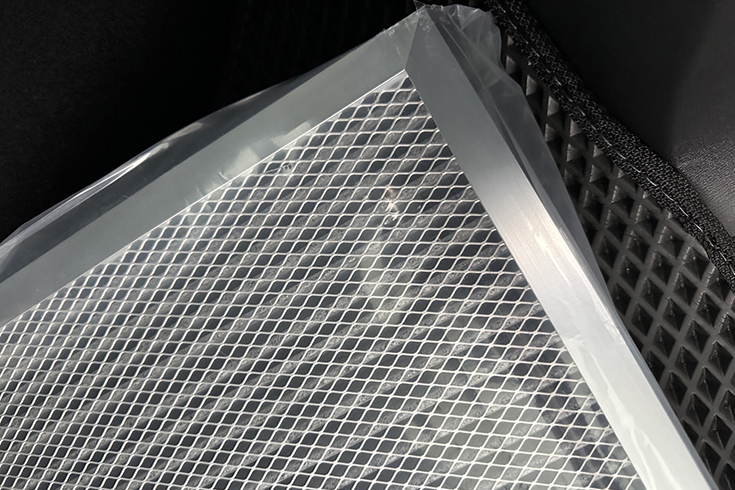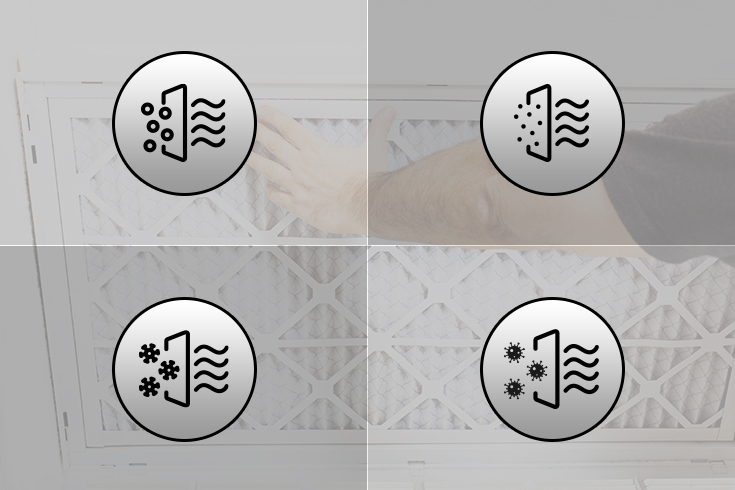Melt Blown Nonwoven Filter
High-Performance Filtration Solutions for Versatile Applications
Our Melt Blown Nonwoven Filters can be engineered from high-quality eco-friendly materials, such as : PA56, PLA and cellulose filament materials, offering exceptional filtration efficiency and durability. Designed for both industrial and commercial use, these filters effectively capture fine particles, ensuring cleaner air, water, and chemical processes.
From chemical processing to HVAC systems, water treatment, and pharmaceutical production, our Melt Blown Filters provide reliable performance in demanding environments. Whether you need Chemical Filters for reactive compounds or Primary Filters for pre-filtration, our solutions are tailored to meet diverse industrial needs.
Advanced Material and Manufacturing Technology
We leverage advanced melt-blown technology combined with premium cellulose filament to produce filters with uniform fiber distribution and consistent pore size. This ensures high efficiency, long service life, and optimal flow rates, giving our clients peace of mind and cost-effective operation.
As a dedicated nonwoven melt-blown filter manufacturer, we adhere to strict quality standards at every production stage. Our melt-blown nonwoven filters are customizable in size, thickness, and filtration rating to meet your specific requirements. Partner with us for reliable products backed by technical expertise and responsive support.

Chemical Filter
A chemical filter is a type of filter specifically designed to filter and adsorb chemical substances in air or water.
It is typically made from activated carbon, special adsorptive materials, or chemically treated fibers, and is highly effective in removing harmful gases, volatile organic compounds (VOCs), smoke, odors, and other pollutants.
It is widely used in air purifiers, air conditioning systems, industrial ventilation systems, and more.
Key Features
Chemical Filter
High Adsorption Capacity
The chemical filter utilizes physical and chemical adsorption principles to capture and remove toxic and harmful substances in air or water, such as formaldehyde, ammonia, benzene, and more.
Long-lasting Filtration
Special filtering materials and technologies give the chemical filter a durable filtration effect, reducing maintenance and replacement frequency.
Versatility
It is suitable for various environments, including homes, offices, industrial production sites, and medical areas, effectively improving air quality and providing a fresh environment.
Environmentally Friendly
Made from natural materials or eco-friendly chemical components, it does not cause secondary pollution to the human body or the environment.
Applications
Chemical Filter
Air Purification
Removes harmful substances and odors from indoor air, keeping the air fresh.
Industrial Ventilation Systems
Effectively filters harmful gases released during industrial production processes.
Water Treatment
Removes chemical pollutants from water, ensuring the safety of water sources.
Chemical filters play an important role in both everyday life and industrial applications, helping create a fresher and safer environment.
Primary Filters
A primary filter is a commonly used air filtration device, mainly designed to filter large particulate matter in the air, such as dust, hair, pollen, etc., thereby protecting downstream filtration equipment from damage and enhancing overall air filtration efficiency.
It serves as the most basic and important protective layer in air handling systems, and is widely applied in air purification, ventilation, and air conditioning systems in residential, commercial, and industrial environments.

Key Features
Primary Filters
Efficient Filtration of Large Particles
Primary filters effectively remove larger particles in the air, such as dust, dirt, and hair, reducing the impact of these particles on human health.
Low Resistance, High Flow
As the first line of defense in a filtration system, primary filters are relatively inexpensive but significantly extend the lifespan of downstream filters, reducing overall maintenance costs.
Cost-Effective
As the first line of defense in a filtration system, primary filters are relatively inexpensive but significantly extend the lifespan of downstream filters, reducing overall maintenance costs.
Easy Installation
Primary filters have a simple structure, making them easy to install and replace, with minimal maintenance, ideal for long-term use.
Applications
Primary Filters
HVAC Systems
Primary filters are commonly used in air conditioning systems in homes and commercial buildings to filter large particles from the air.
Industrial Ventilation
In industrial production, primary filters can be used to remove dust, smoke, and other contaminants from the workshop air, ensuring worker health.
Indoor Air Purification
Used in indoor air filtration devices, primary filters help remove large particles from the environment, providing cleaner air.
Primary filters are essential components in filtration systems. While their filtration effect mainly targets larger particles, they play a crucial role in improving overall air quality and protecting other filtration equipment.
